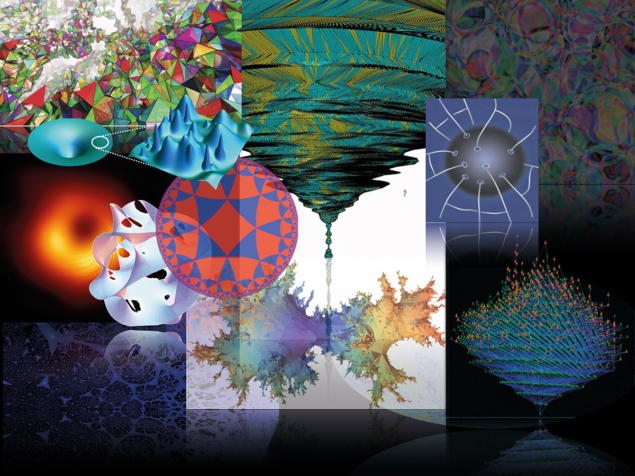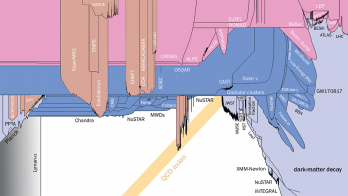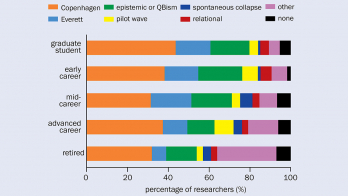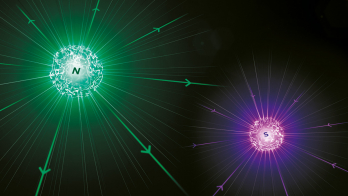Increasing cross-talk between different communities will be of great advantage to the endeavour of quantum gravity, even if there is no explicit convergence in fundamental perspectives, argue Bianca Dittrich and Daniele Oriti.

The challenge of casting space–time and gravity in the language of quantum mechanics and unravelling their fundamental structure has occupied some of the best minds in physics for almost a century. Not only is it one of the hardest problems out there – requiring mastery of general relativity, quantum field theory, high-level mathematics and deep conceptual issues – but distinct sub-communities of researchers have developed around different and apparently mutually exclusive approaches.
Historically, this reflected to a large extent the existing subdivision of theoretical physics between the particle-physics community and the much smaller gravitational physics one, with condensed-matter theorists entirely alien, at the time, to the quantum gravity (QG) problem. Until 30 years ago, the QG landscape roughly featured two main camps, often identified simply with string theory and canonical loop quantum gravity, even if a few more hybrid formalisms already existed. Much progress has been achieved in this divided landscape, somehow maintaining each camp in the belief that one only had to push forward its own strategies to succeed. At a more sociological level, intertwined with serious scientific disagreements, this even led, in the early 2000s, to what the popular press dubbed the “String Wars”.
A new generation has grown up in a diverse, if conflicting, scientific landscape
Today there is a growing conviction that if we are going to make progress towards this “holy grail” of physics, we need to adopt a more open attitude. We need to pay serious attention to available tools, results and ideas wherever they originated, pursuing unified perspectives when suitable and contrasting them in a constructive manner otherwise. In fact, the past 30 years has seen the development of several QG approaches, the birth of new (hybrid) ones, fresh directions and many results. A new generation has grown up in a diverse, if conflicting, scientific landscape. Today there is much more emphasis on QG phenomenology and physical aspects, thanks to parallel advances in observational cosmology and astrophysics, alongside the recognition that some mathematical developments naturally cut across specific QG formalisms. There is also much more contact with “outside” communities such as particle physics, cosmology, condensed matter and quantum information, which are not interested in internal QG divisions but only in QG deliverables. Furthermore, several scientific overlaps between QG formalisms exist and are often so strong that they make the definition of sharp boundaries between them look artificial.
Introducing the ISQG
The time is ripe to move away from the String Wars towards a “multipolar QG pax”, in which diversity does not mean irreducible conflict and disagreement is turned into a call for better understanding. To this end, last year we created the International Society for Quantum Gravity (ISQG) with a founding committee representing different QG approaches and more than 400 members who do not necessarily agree scientifically, but value intelligent disagreement.
ISQG’s scientific goals are to: promote top-quality research on each QG formalism and each open issue (mathematical, physical and in particular conceptual); stimulate cross-fertilisation across formalisms (e.g. by focusing on shared mathematical ingredients/ideas or on shared physical issues); be prepared for QG observations and tests (develop a common language to interpret experiments with QG implications, and a better understanding of how different approaches would differ in predictions); and push for new ideas and directions. Its sociological goals are equally important. It aims to help recognise that we are a single community with shared interests and goals, overcome barriers and diffidence among sub-communities, support young researchers and promote QG outside the community. A number of initiatives, as well as new funding schemes, are being planned to help achieve these goals.
We envision the main role of the ISQG as sponsoring and supporting the initiatives proposed by its members, in addition to organising its own. This includes a bi-annual conference series to be announced soon, focused workshops and schools, seminar series, career support for young researchers and the preparation of outreach and educational material on quantum gravity.
So far, the ISQG has been well received, with more than 100 participants attending its inaugural workshop in October 2021. Researchers in quantum gravity and related fields are welcome to join the society, contribute to its initiatives and help to create a community that transcends outdated boundaries between different approaches, which only hinder scientific progress. We need all of you!








